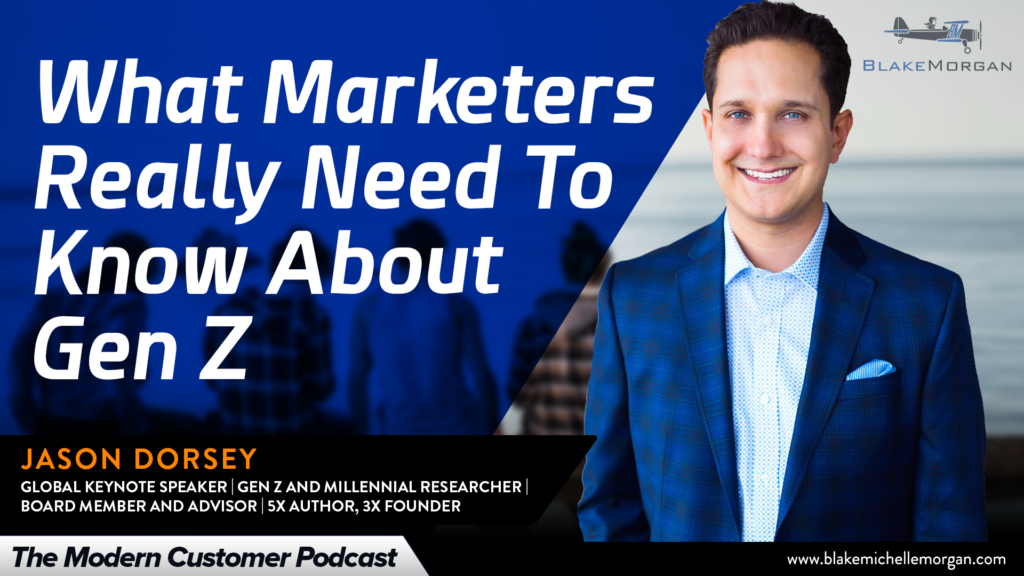For years, experts have talked about millennials and looked towards the future of Generation Z, the generation to follow. But Gen Z is now here and already having a massive impact, both as employees and as consumers. Marketers need to understand Gen Z to realize its full impact and to separate the truth from long-held myths.
Generational researcher Jason Dorsey is an expert on all things Gen Z. He studies generational behavior so that leaders, marketers, employers, and others can understand the differences between each generation. But he warns against putting generations in boxes. The wide range of ages and life experiences means that within a generation are multiple different groups. However, generations offer powerful clues that can drive trust and help marketers create valuable experiences by bringing them one step closer to understanding their consumers.
Contrary to what many people think, Gen Z isn’t made up entirely of teenagers. The group is growing up so that the oldest members are now approaching their mid-20s. Gen Z is the fastest-growing generation in the workforce.
Most people view Gen Z as the next wave of millennials, but Dorsey’s research shows that Gen Z is actually very different. He calls Gen Z a throwback generation that actually has more in common with baby boomers than millennials. Gen Z is one of the most frugal generations. They are more likely to use coupons and find deals than their millennial predecessors. They want to graduate college without debt and tend to care more about their workplace benefits. A large number of Gen Z is even already saving for retirement. Dorsey’s research also found that Gen Z will soon leapfrog some millennials in the workforce, creating a strange combination of generations and ideologies.
Gen Z is more likely to trust an influencer or someone like them over someone with advanced degrees. And because they’ve grown up with technology and smartphones, Gen Z values social media and the news it provides but realizes it creates many mental health triggers.
Gen Z doesn’t remember 9/11, which was the generational defining event for millennials. Gen Z doesn’t know life before 9/11, and their lives aren’t shaped by the changes that happened after the event. Gen Z doesn’t represent change because this is all they’ve ever known. In many ways, the COVID-19 pandemic will be the generational defining event for Gen Z and impact their mindset moving forward.
So what does this mean for marketers? Understanding that Gen Z isn’t simply millennials 2.0 is an important differentiation. Gen Z values different things than millennials and has different priorities. They also aren’t the teenagers many have long considered Gen Z to be. Gen Z will have a tremendous impact on the workforce and the economy going forward as they become the most powerful generation.
Understanding generations gives marketers clues and tools to know their consumers. With this understanding of generational cues, marketers can create more personalized experiences that best target this influential group.
Blake Morgan is the bestselling author of The Customer of the Future. Sign up for her new course here.
For regular updates on customer experience, sign up for her weekly newsletter here.

